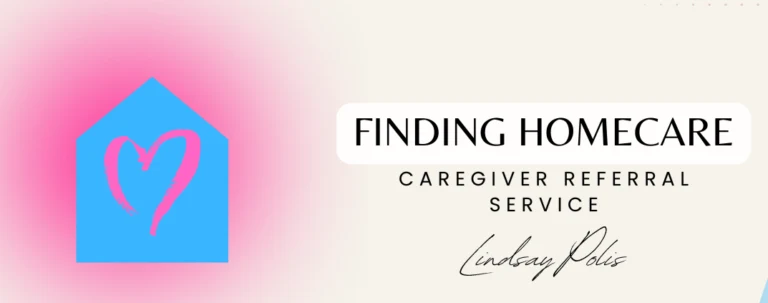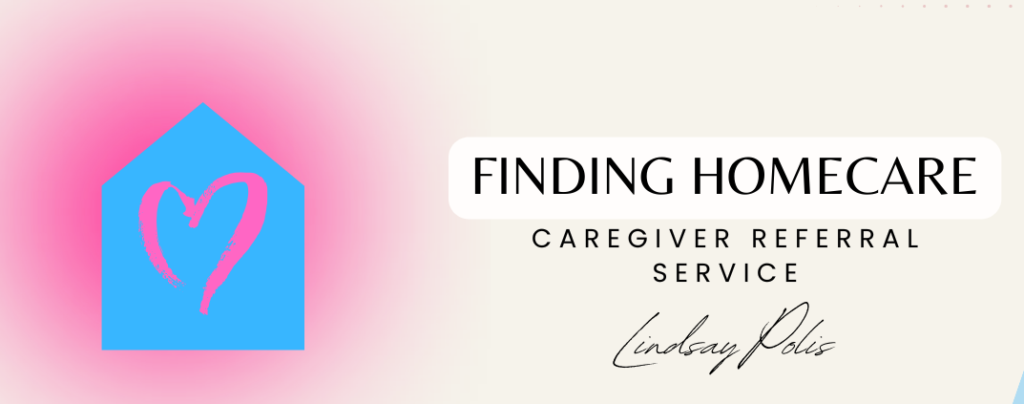Hospice care interviews play a crucial role in selecting compassionate professionals who are not only clinically skilled but also emotionally resilient and deeply empathetic. Whether you’re a nurse, social worker, or caregiver, this guide will help you prepare with 50 common hospice care interview questions, sample answers, and expert advice to help you stand out.
Top 50 Interview Questions
Below are 50 hospice care interview questions, organized into key categories, with sample answers to guide your preparation.
Clinical Skills and Knowledge
-
What is your experience with pain management in hospice care?
“I’ve worked with interdisciplinary teams to assess and manage pain using both pharmacological and non-pharmacological methods. For example, I collaborated with physicians to adjust morphine dosages for a patient with severe cancer pain, ensuring comfort while monitoring for side effects. I also use techniques like guided imagery to complement medical interventions.” Learn more about hospice care basics. -
How do you assess a patient’s end-of-life needs?
I use holistic tools like the Edmonton Symptom Assessment System and consider physical, emotional, and spiritual dimensions. Family input is key to tailoring the care plan. -
What medications are commonly used in hospice care, and what are their purposes?
Common medications include opioids like morphine for pain, lorazepam for anxiety, and haloperidol for nausea or agitation. Each is carefully titrated to balance symptom relief with minimal side effects, aligning with the patient’s goals.” Understand palliative vs. hospice care. -
How do you stay updated on hospice care best practices?
I regularly attend webinars from organizations like the National Hospice and Palliative Care Organization (NHPCO) and read journals like the Journal of Palliative Medicine. I also participate in team debriefs to learn from colleagues’ experiences.” -
Describe your experience with wound care in hospice patients.
I’ve managed pressure ulcers and other wounds by following evidence-based protocols, such as using moisture-retentive dressings and ensuring proper positioning. For a patient with a stage III ulcer, I coordinated with a wound care specialist to promote comfort and prevent infection.”
Compassion and Emotional Resilience
-
How do you handle emotional stress when a patient passes away?
I allow myself to grieve briefly, as it’s natural, but I focus on honoring the patient’s life through reflection. I practice self-care techniques like mindfulness and debrief with colleagues to process emotions while staying ready to support other patients.” Explore caregiver wellness resources -
How do you support a patient’s family during the dying process?
I provide clear, compassionate communication about what to expect and offer emotional support. For example, I sat with a family, explaining physical changes in their loved one and encouraging them to share memories, which helped them find closure. Discover benefits of home hospice -
What does empathy mean to you in the context of hospice care?
Empathy is understanding a patient’s or family’s emotions and perspectives without judgment. It’s listening actively, validating their feelings, and tailoring care to their unique needs, like respecting a patient’s cultural rituals at the end of life.” -
How do you maintain boundaries while being compassionate?
I build trust through empathy but avoid over-involvement by focusing on professional support. For instance, I comforted a grieving spouse but redirected them to a counselor for long-term emotional needs, preserving my role as a caregiver.” -
How do you handle a situation where a family disagrees with a patient’s care plan?
I listen to their concerns with empathy, clarify the care plan’s rationale, and involve the interdisciplinary team to address conflicts. In one case, I facilitated a family meeting with a social worker to align everyone on the patient’s comfort-focused goals.”
Scenario-Based Questions
-
A patient refuses pain medication due to fear of addiction. How do you respond?
I’d acknowledge their fear, explain that addiction is not a concern in end-of-life care, and emphasize how medication can improve their quality of life. I’d involve a pharmacist or physician to provide reassurance and explore alternative relief methods.” -
A family member is angry about the progression of their loved one’s illness. How do you handle it?
I’d listen without interrupting, validate their frustration, and gently explain the disease process. I’d offer resources like counseling and ensure they feel heard, which often de-escalates tension.” -
You notice a colleague struggling emotionally after a patient’s death. What do you do?
I’d approach them privately, offer a listening ear, and suggest a debrief with the team or access to employee assistance programs. Supporting colleagues strengthens our ability to care for patients.” -
A patient is anxious about dying. How do you comfort them?
I’d sit with them, listen to their fears, and provide reassurance tailored to their beliefs. For a spiritual patient, I might arrange a chaplain visit while using calming techniques like deep breathing to ease immediate anxiety.” -
What would you do if you suspect a patient’s symptoms are not adequately managed?
I’d reassess the patient, document findings, and consult the physician for adjustments. For example, I once noticed increased agitation in a patient and advocated for a medication review, which improved their comfort.”
Teamwork and Communication
-
How do you collaborate with an interdisciplinary hospice team?
I actively participate in team meetings, share patient updates, and respect each member’s expertise. For instance, I worked with a music therapist to incorporate soothing music into a patient’s care plan, enhancing their relaxation.” -
How do you communicate bad news to a patient or family?
I use the SPIKES protocol: setting up a private space, perceiving their emotions, inviting questions, giving knowledge gently, empathizing, and summarizing. This ensures clarity and compassion.” -
Describe a time you resolved a conflict with a coworker in hospice care.
A nurse and I disagreed on a patient’s repositioning schedule. I initiated a calm discussion, we reviewed the patient’s needs, and we agreed on a compromise that prioritized comfort, strengthening our collaboration.” -
How do you ensure clear communication with non-English-speaking families?
I use professional interpreters and culturally sensitive approaches. For a Spanish-speaking family, I arranged for an interpreter and provided translated materials to ensure they understood the care plan.” -
How do you handle a situation where a physician’s orders seem inappropriate?
I would respectfully discuss my concerns with the physician, providing specific observations. If unresolved, I’d escalate to a supervisor while ensuring the patient’s immediate needs are met.”
Ethical and Cultural Considerations
-
How do you respect a patient’s cultural or religious beliefs in care?
I ask about their preferences early and incorporate them into the care plan. For a Hindu patient, I ensured their family could perform specific rituals and coordinated with a chaplain familiar with their traditions.” -
What would you do if a patient’s family requests withholding information from the patient?
I would explore their reasons while advocating for the patient’s autonomy. I’d involve an ethics committee if needed to balance family wishes with the patient’s right to know.” -
How do you handle a situation where a patient’s wishes conflict with medical advice?
I respect the patient’s autonomy while educating them on risks. For example, I supported a patient who declined a feeding tube by focusing on comfort measures and coordinating with the team to honour their decision.” -
What is your approach to ethical dilemmas in hospice care?
I follow ethical principles like beneficence and autonomy, consult colleagues, and use resources like ethics committees. In one case, I facilitated a discussion to resolve a disagreement about withdrawing treatment, ensuring the patient’s wishes were central.” -
How do you address spiritual needs in patients with no religious affiliation?
I explore what gives them meaning, such as family or nature, and incorporate those elements. For an atheist patient, I arranged for their grandchildren to visit, which brought them peace.”
If you need the full 50 FAQ and answers, Download PDF File
Skills Employers Seek
Hospice employers prioritize the following skills, as highlighted in our guide to essential caregiver skills:
- Communication: Clearly conveying information to patients, families, and teams.
- Empathy: Understanding and responding to emotional needs with compassion.
- End-of-Life Care Knowledge: Expertise in symptom management, ethical considerations, and care planning.
- Resilience: Maintaining emotional stability in high-stress situations.
- Teamwork: Collaborating effectively with nurses, physicians, social workers, and chaplains.
Preparation Tips
- Research the Organization: Understand their mission, patient population, and services. For example, review their website or recent NHPCO reports.
- Practice Self-Care Techniques: Be ready to discuss how you manage stress, such as through meditation or peer support.
- Prepare Patient-Centric Examples: Use the STAR method (Situation, Task, Action, Result) to structure responses.
- Mock Interviews: Practice with a colleague to refine your answers and body language.
- Know Key Terms: Be familiar with terms like “palliative sedation” or “anticipatory grief” to demonstrate expertise.
Common Mistakes to Avoid
- Oversharing Personal Experiences: Focus on professional examples, not personal losses.
- Lacking Patient-Centric Examples: Always tie answers to patient care outcomes.
- Appearing Unprepared: Research the role and organization to avoid vague responses.
- Neglecting Emotional Resilience: Show you can handle the emotional demands of hospice work.
- Ignoring Cultural Sensitivity: Demonstrate awareness of diverse patient needs.
Post-Interview Steps
- Send a Thank-You Note: Within 24 hours, email a concise note thanking the interviewer, reaffirming your interest, and referencing a specific discussion point.
- Follow Up Politely: If no response after a week, send a professional email inquiring about the hiring timeline.
- Reflect on the Interview: Note areas for improvement to refine your approach for future opportunities.
FAQs
What should I wear to a hospice care interview?
Wear professional attire, such as a suit or business casual clothing, in neutral colors. Ensure your appearance is neat and reflects respect for the role.
How long do hospice interviews typically last?
Most interviews last 30–60 minutes, though panel interviews or those with practical components may extend to 90 minutes.
Should I bring anything to the interview?
Bring copies of your resume, certifications (e.g., CHPN), and a notebook for jotting down key points.
How can I demonstrate passion for hospice care?
Share a specific story about why you chose this field and highlight your commitment to patient dignity and comfort.
What if I don’t have hospice experience?
Emphasize transferable skills from related fields (e.g., oncology, geriatrics) and your eagerness to learn hospice-specific protocols.
Expert Insights
“Hospice care is about creating moments of meaning, not just managing symptoms. We look for candidates who can connect with patients and families on a human level while staying professional.” — Sarah Thompson, Hospice RN Manager, 15 years of experience.
A 2023 NHPCO study found that 78% of hospice employers prioritize emotional intelligence over technical skills in hiring, underscoring the need for empathy and resilience.
“The best candidates show they’ve done their homework—not just about our organization but about the evolving landscape of end-of-life care.” — Dr. Michael Chen, Medical Director, Harmony Hospice.
Resources
-
Certifications: Certified Hospice and Palliative Nurse (CHPN) via the Hospice and Palliative Credentialing Center (HPCC).
-
Books: Being Mortal by Atul Gawande; The Four Things That Matter Most by Ira Byock.
-
Training: NHPCO’s online courses; ELNEC (End-of-Life Nursing Education Consortium) modules.
Websites:
- National Hospice and Palliative Care Organization,
- Hospice Foundation of America
- American Academy of Hospice and Palliative Medicine
Conclusion
This comprehensive guide equips you with the tools to confidently navigate your hospice care interview. Prepare thoroughly, showcase your compassion, and demonstrate your commitment to providing exceptional end-of-life care. For more caregiving insights, visit Finding Home Care. Good luck


